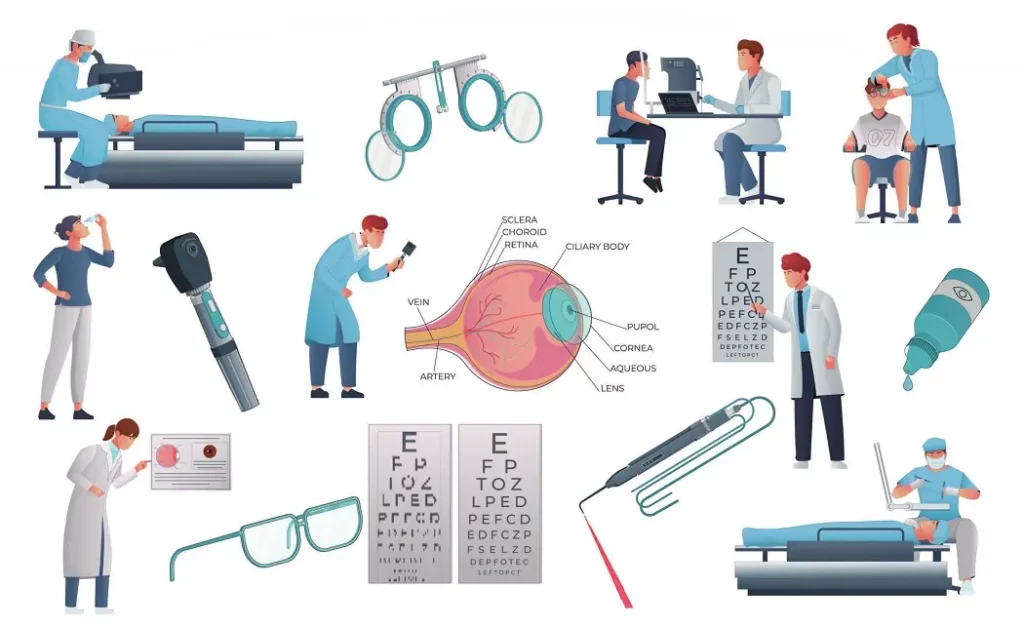Featured
Table of Contents

Normal eye evaluations are vital for preserving excellent vision and spotting possible eye health and wellness issues early. Nonetheless, the frequency of these tests can differ significantly based upon an individual's age, way of living, and overall wellness. Comprehending the suggested timetable for eye tests can help make sure that people of any ages get proper treatment and tracking for their eye health and wellness.
Newborns and Toddlers (0-2 Years)
For kids and babies, eye exams are essential for spotting any possible vision problems beforehand. The American Academy of Ophthalmology suggests that a child's first eye test must occur at around six months of age. During this initial browse through, the eye treatment specialist will certainly evaluate the kid's visual development and look for any type of apparent eye concerns.Following this first examination, it is suggested that children have an additional eye test at age 3. This visit will concentrate on evaluating the child's general visual function, including eye alignment and the capacity to track things. If no concerns are found, the next test should be scheduled prior to the youngster starts college, commonly around age five or six.
School-Aged Youngsters (6-18 Years)
Regular eye exams must be scheduled every one to 2 years once children get to institution age. Vision is vital for discovering and advancement, and several institutions carry out vision testings. These screenings do not replace a comprehensive eye exam by an eye treatment professional.For children associated with sporting activities or activities needing considerable aesthetic emphasis, yearly eye exams might be suggested. In addition, if a youngster shows indicators of vision problems-- such as difficulty reading, scrunching up your eyes, or regular migraines-- a browse through to the eye medical professional must be arranged immediately.
Young Adults (19-39 Years)
Young person commonly have fewer vision changes than older age, yet normal eye examinations remain vital. The general suggestion is to set up an eye exam every two years during this period. However, individuals with particular danger variables-- such as a family members background of eye illness, diabetic issues, or those who wear get in touch with lenses-- must think about annual eye tests.Additionally, those that spend significant time on electronic gadgets may experience digital eye pressure. If signs and symptoms such as dry skin, tiredness, or blurred vision happen, it may be a good idea to see an eye care professional sooner.
Adults (40-64 Years)
Grownups aged 40 to 64 must set up eye examinations every one to 2 years. Eye examinations can likewise assist discover various other usual age-related conditions such as glaucoma, cataracts, and macular deterioration.If individuals in this age have threat factors such as hypertension or diabetes, they may need more constant examinations to check their eye wellness closely.
Senior Citizens (65 Years and Older)
For elders, regular eye exams become much more critical. The American Optometric Association advises that people aged 65 and older have an eye exam at the very least annually. Older grownups go to a greater danger for various eye diseases, consisting of cataracts, glaucoma, and age-related macular deterioration. Early detection and therapy of these conditions can prevent vision loss and improve the lifestyle.Conclusion.
Recognizing the suitable timetable for eye tests based on age is vital for keeping optimum eye health and wellness throughout life. By sticking to these standards and seeking advice from with an eye care specialist, individuals can take positive steps toward maintaining their vision and total wellness.Table of Contents
Latest Posts
Enjoy the Flavor of the Week with Daily Specials at The other day's Pub
Published May 19, 25
1 min read
Relax with the Finest Delighted Hour around at Yesterday's Pub
Published May 13, 25
2 min read
Plan Your Dream Wedding at Deauville Inn: Elegant Waterfront Venues
Published May 13, 25
2 min read
More
Latest Posts
Enjoy the Flavor of the Week with Daily Specials at The other day's Pub
Published May 19, 25
1 min read
Relax with the Finest Delighted Hour around at Yesterday's Pub
Published May 13, 25
2 min read
Plan Your Dream Wedding at Deauville Inn: Elegant Waterfront Venues
Published May 13, 25
2 min read